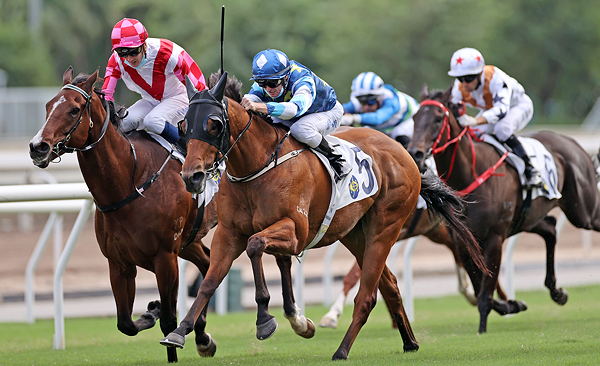 |
RacingBetter News |
| Tuesday 16th November 2021 | |
How Does the Youth of a Jockey Compare with Other Sports?

To succeed as a professional athlete at the highest levels of your chosen sport, you need to have accumulated years of training and experience. In most cases, this means being involved in the sport in some capacity from a young age.
The dream of becoming a successful sportsperson - one that is held by many young people - can only be achieved through dedication and commitment over years and years of training and competing.
It is extremely rare for someone to thrive at an elite level of sport without much experience; such instances are outliers and exceptions. Involvement in a sport from childhood or pre-teen years is usually a prerequisite for achieving professional sporting success.
That is undoubtedly the case for jockeys, who must jump through more hoops than most other athletes in other sports, as well as honing their skills.
When looking at the US sports betting market, it’s clear that horse racing is not as big as other sports. Facilities to train in are more difficult to find and more expensive, and so the youth of a jockey can also be a costly one.
This requires a lot of time sacrificed as a youth to meet this requirement, but it’s also linked to another aspect of being a jockey that is unique when compared with other sports, handling an animal. Jockeys, obviously, need to be able to control a horse during races and so need to be comfortable around them and know how to look after them properly.
This takes time and a lot of teaching but can also only be achieved by actually being around horses and riding them regularly. This is vastly different to other sports, which usually require the use of inanimate objects.
The other key component of a jockey which marks it out from other sporting roles is weight; jockeys have to weigh in under a certain limit before each race. For flat jockeys, this is usually around 8 stone and for jump jockeys the weight is around the 9 stone mark.
Height plays a significant factor here and there’s a reason most jockeys are short - there’s no official limit on height for jockeys, but to make weight most tend to sit in the 4’10” to 5’6” range.
So, from a young age, jockeys must learn to keep their weight under control and usually have to be very strict with their diet and lifestyle, particularly as their body begins to develop as they grow older.
Though their horse is the one doing the running, jockeys still need to be fit and strong in order to keep their steed under control. Horses are extremely powerful animals, and it takes surprising levels of strength to keep them on track when they’re galloping.
In fact, jockeys usually must undergo medical and fitness examinations in order to become officially accredited. They must demonstrate that they can keep a horse under control for a certain distance, usually at least six furlongs.
This means that, in their youth, jockeys not only need to become very familiar with handling horses but also need to train their bodies to meet the physical challenges of racing. This is not too different to the life of a young American football player, who will need to develop explosiveness, strength and speed in order to succeed on the gridiron.
College football is a huge deal in the US and young players must dedicate massive portions of their lives to make the cut. Football is also quite selective in terms of the physical makeup of its participants. While jockeys need to be small, football players must be relatively large in both height and build to thrive. However, there are no strict rules on this like with jockeys.
The youth of a jockey can also come with a lot of risk, particularly when they are still learning the ropes. There are few other sports that have people travelling at such speeds with relatively little protection should they fall or crash. A young jockey needs to become comfortable with those risks but also know how to mitigate them as much as possible.
Team sports like football, soccer and basketball come with feelings of camaraderie and belonging, and while a jockey will be working with others as part of a stable, the sport is still an individual one and can be isolating at times.
The main difference between the youth of a jockey and that of other athletes is the involvement of horses and the need to become an expert at handling them. This requires a lot of time and, usually, money, not to mention resilience and focus. Jockeys must also become used to keeping their body weight under a certain limit, which can be particularly gruelling.






